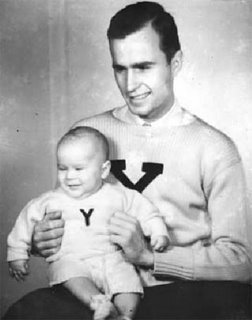
Submitted to Munity-East, Volume 3, Issue 4, 2006
The value in education is obvious for most international school kids. You go to school to get your learning, and then you go on to become doctors, or lawyers, or artists, or diplomats. The schooling that you receive is an enabler. It allows you to plan for and to meet your goals . . . those goals most likely include the attainment of health, happiness, and prosperity.
Some of you who have stopped to think about it see other benefits in education. Maybe you see learning as an end in itself. You read a great novel or master a new mathematical concept, and this accomplishment gives you a sense of satisfaction and edification. You see that education has added to your understanding of the world and your quality of life. You see that you’ve been exposed to things that many people in the world may never understand or appreciate – the joy of travel, the sense of wonder that you experience at a museum or an opera, or the simple pleasure of a conversation that challenges your intellect and sharpens your opinions.
So, education is a means of achieving one’s goals and improving one’s quality of life. But what about education as a means for solving world problems? Can the value of education be extended beyond the individual? After having been a student for a score of years and a teacher for another decade, I would argue that education as a concept will have a huge impact on the future – just as it has had on the past. Our efforts to educate not only ourselves, but to extend that education to impoverished or strife-ridden areas of the world will dramatically influence the course of events during the 21st century.
The fact is that the world is becoming smaller. Cliché, yes, but true nonetheless. As people of different nationalities, races, and beliefs begin more and more to rub elbows, it will become more and more apparent that one’s neighbor’s level of education is as important – or sometimes more important – than one’s own.
A case in point today is the level of xenophobia between many countries of the world. As educated individuals, we know that the large majority of people, no matter what their nationalities, share many common values: family, prosperity, a desire to live in peace and happiness. When knowledge and history are controlled or repressed by the state, it’s easy for the masses to come to see outsiders as monsters. There are numerous uneducated or unthinking individuals among us who see others as barbaric, cruel, or “out-to-get-them.”
Tyrants, maybe more than anyone else, understand the power of education, or more precisely, the lack thereof. That is why they work so hard to keep their subjects in the dark. Their Orwellian demonization of other cultures through manipulation of knowledge and the media diminishes the humanity of those peoples, thereby twisting reality so that repression and genocide are a moral obligation. So “un”education is also an enabler. It allows the few to control the many by playing upon their fears and prejudices. Education is the means of toppling these ideas. It is impossible for people to maintain the same levels of prejudice and hatred after having been exposed to the similarities of those so-called opposing cultures.
The deteriorating environment represents another educational dilemma. Ultimately, we all breathe the same air, we drink the same water, and we walk on the same ground. We can’t allow ourselves to forever maintain our dependence on polluting energy sources which corrupt our life’s medium. It is important that we educate ourselves in the use of alternative and renewable energy sources and that we then look to their proliferation. We also cannot allow many societies of the world to continue to experience the ravages of preventable diseases. Who will educate the children if the parents are dead? Besides the fact that no one will be there to teach them not to hate us, there may also be no one to explain the consequences of cutting down their forests, or that poverty is a cycle fueled by lack of family and financial planning, or about how mining or clear-cutting can lead to erosion and dangerous metal seepage, thereby diminishing food supplies and further deteriorating the population’s already sub-standard levels of health.
It’s not enough to view education as a means to an end for the individual. While working to become a doctor, lawyer, artist, or a diplomat is a noble goal, it is fundamental that we also work to become teachers in the sense that we support and participate in the efforts to spread the same value for learning that has so positively affected our own lives. Be a doctor who teaches cleanliness and sanitation. As a lawyer, help those with little understanding of the government to avoid becoming the victim of it. Put your artistic talents to work to show that a mountain is more beautiful than as strip mine. As a diplomat, work to understand other cultures and ensure that they understand your own. Because, as all learned people must understand, education is more than a personal endeavor; it is a responsibility. Empowering others through teaching will broaden the pool of responsible global citizens. It is the factor that will determine whether we will progress toward a more promising future or continue to wallow in the mistakes and poor practices of the past and present.







